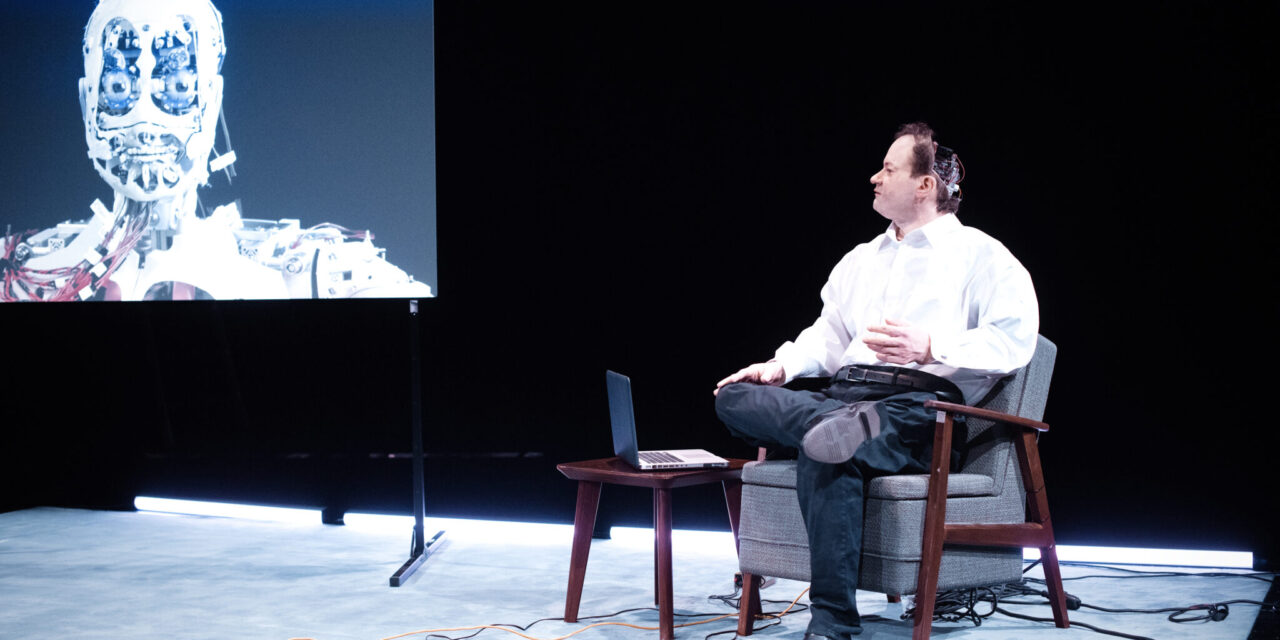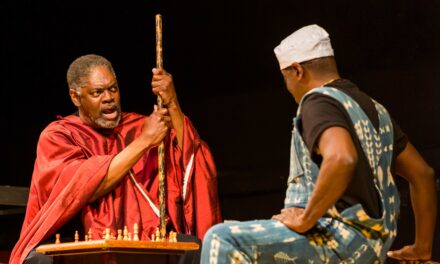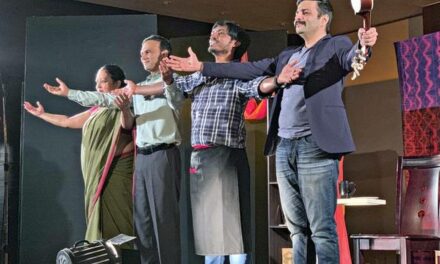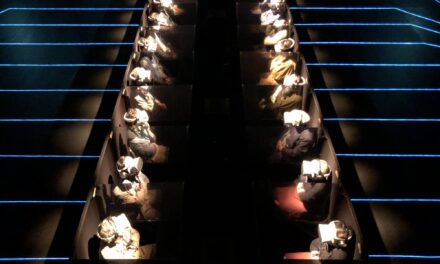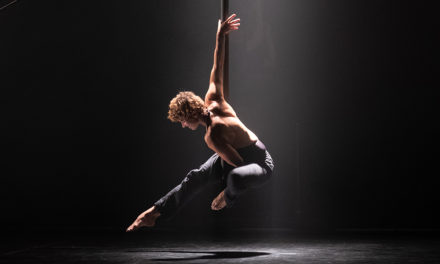When Uncanny Valley premiered back in 2018, the idea of artificial intelligence augmenting or substituting live performance might have seemed far-fetched, extravagant and very niche in its interests. Following the covid-19 pandemic, marked by the digital technology’s role in meeting our cultural needs, however, this show feels uncannily relevant. Entirely performed by a humanoid robot, the collaboration between Stefan Kaegi of Rimini Protokoll with the German writer Thomas Melle, Chiscreatures Filmeffects GmbH and the Munich Kammerspiele theatre also results in a show that can be repeated multiple times a day without fear of exploiting the actors, which, given its instant sell out status on its arrival to London, might actually be a good thing.
The uncanniness in the title though refers to a phenomenon identified by the Japanese roboticist Masahiro Mori in 1970 – a simultaneous feeling of fascination and emotional discomfort experienced by humans in their encounter with a humanoid machine. This effect too forms an incidental stopover in Kaegi and Melle’s show which begins somewhere completely different.
Uncanny Valley is prompted by Thomas Melle’s incisive enquiry into the extent to which contemporary technology can deliver medical prosthesis. If it is otherwise capable of helping people with physical disabilities through for example cochlear implants or artificial limbs, might technology be capable in helping with mental disability such as bipolar personality disorder? To resolve a ‘loss of control’ over his moods, Melle embarks on the project of building an animatronic robot in his very image which would eventually be able take his place in his daily activities as and when his condition makes this necessary.
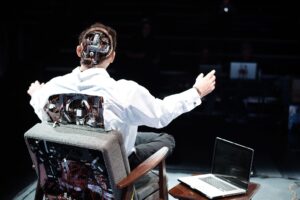
PC: press photo.
Moving beyond the purely utilitarian, Kaegi and Melle’s lecture performance delivered by a ‘theatre machine’ – though not dissimilar to the old-fashioned puppetry shows as Melle himself points out – is also a springboard for further and deeper dialectical reflection on the ontological imbrication of the human history with technology, the nature of empathy in a theatre experience, and, ultimately, the sublime beauty of error.
Contrary to an assumption that immediately imposes itself, this technologically slick and accomplished show is not all about bells, whistles and stage trickery. Instead its main strength lies in Melle and Kaegi’s often thought-provoking, erudite and poetic text which also deftly intertwines with the tragic story of Alan Turing, the fairytale of Snowhite, and the accidental inversion of Dorian Gray’s iconic relationship with his immaterial double in the attic.
Meticulous processes of construction underlie this show on many levels but there is as much attention to detail in its storytelling too. Where motionlessness necessarily predominates, the performance achieves dynamism through an inspired and sometimes self-reflexive interplay of light, sound, video projection and ‘live’ verbal delivery.
The only thing that is missing from this theatre experience perhaps is the performer’s ability to ad lib on the ‘here and now’ of the theatrical encounter, making it more normal than usual for the audience members to decide to take impromptu toilet breaks. However, the uncertainty that makes live performance more exciting than other artforms is still contained here within the reliance on the technical crew to ensure an error-free sequence of complex cues. It is a real pity that these true stars of the show unfortunately remain behind the scenes at curtain call as the audience are invited to inspect the electronic creature more closely instead. That incidental act of privileging of the technological gloss over the human contribution is, to my mind, perhaps the only omission in its execution.
This post was written by the author in their personal capacity.The opinions expressed in this article are the author’s own and do not reflect the view of The Theatre Times, their staff or collaborators.
This post was written by Duška Radosavljević.
The views expressed here belong to the author and do not necessarily reflect our views and opinions.

